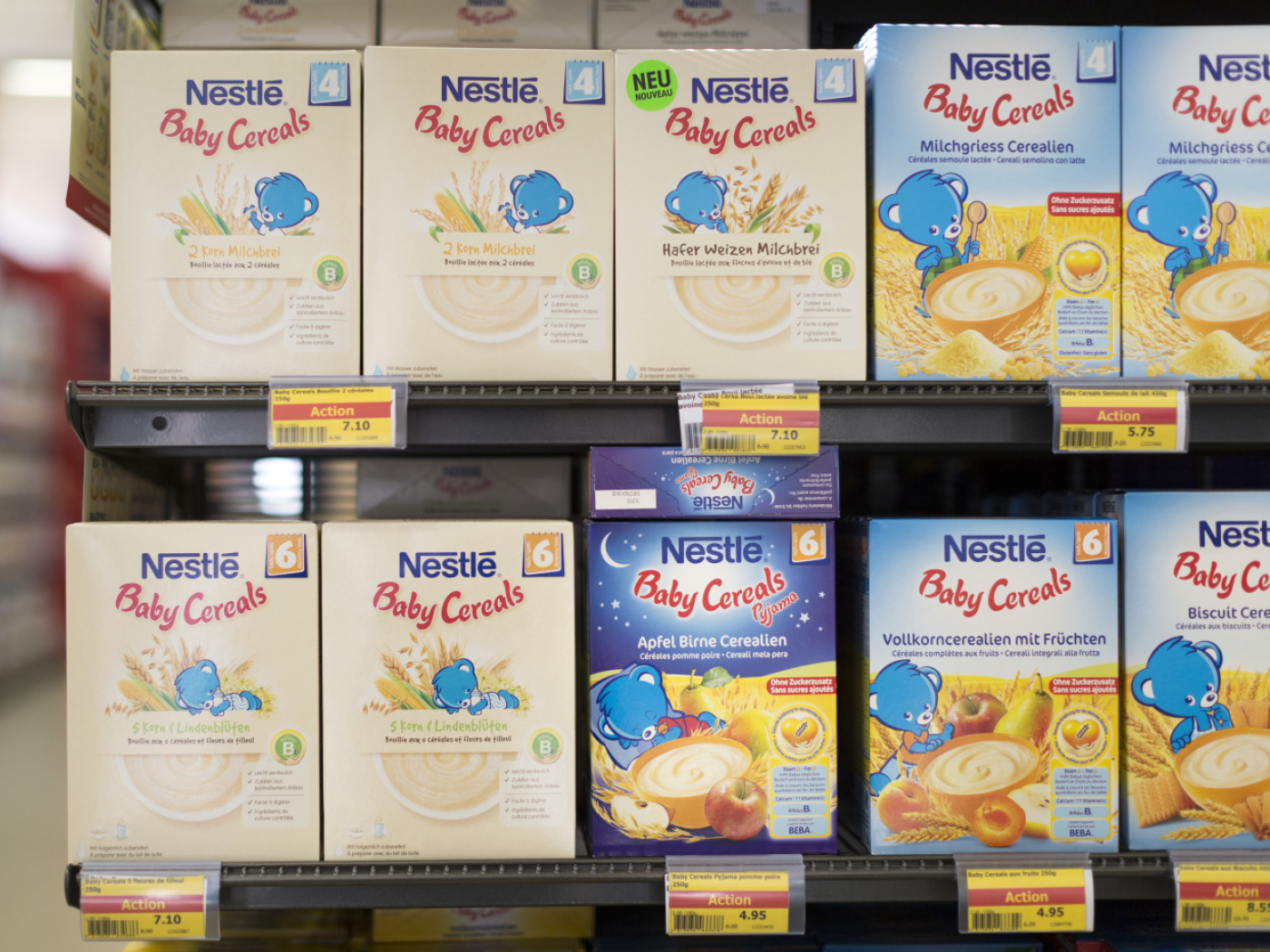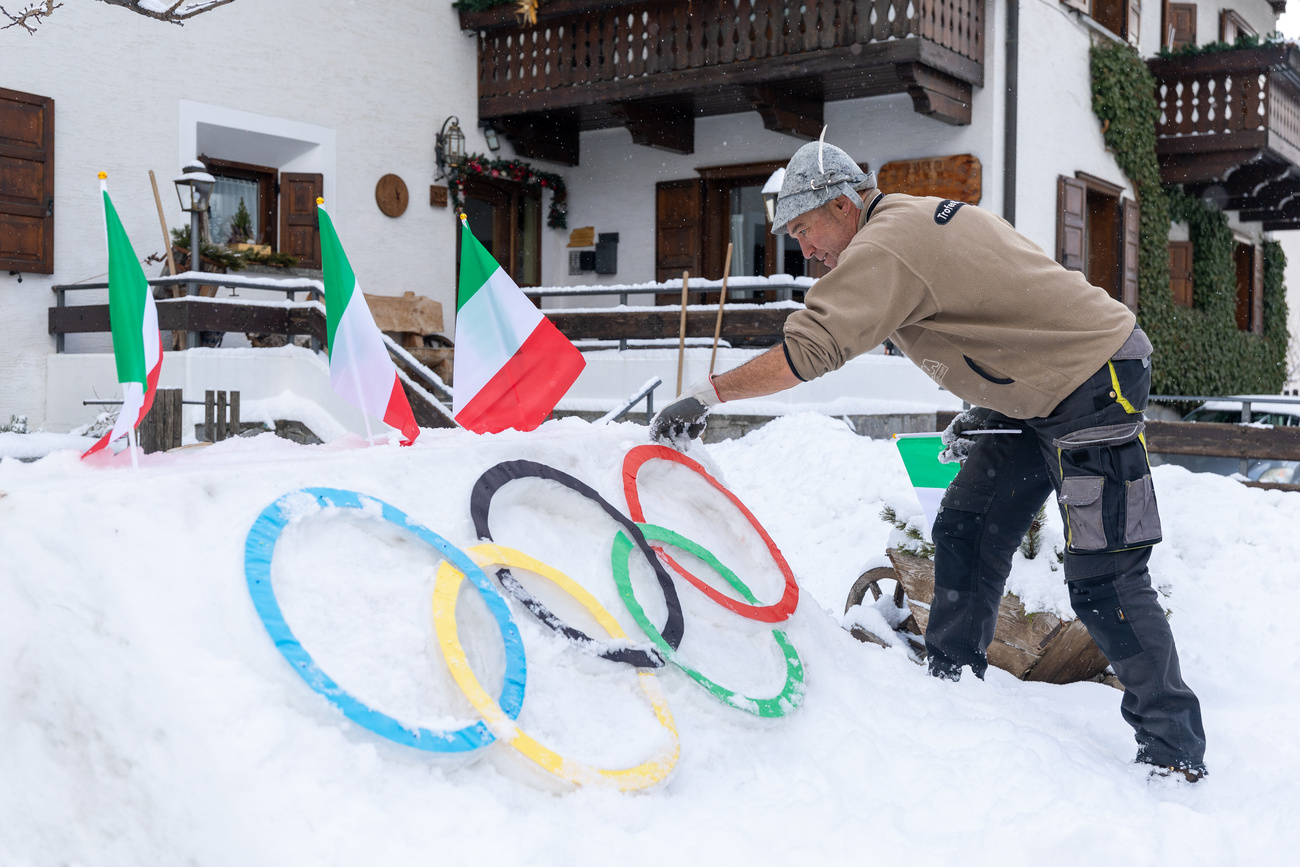
Nestlé accused of selling high sugar content in Africa

Swiss NGO Public Eye has again accused the Swiss food giant Nestlé of selling over-sugared baby food in Africa.
+Get the most important news from Switzerland in your inbox
In a new analysis, Public Eye and partner organisations found high levels of added sugar in more than 90% of around 100 Cerelac products from 20 countries, in some cases up to almost two cubes per serving.
In Europe and Switzerland, Nestlé offers comparable products without added sugar, Public Eye announced on Tuesday. The organisation criticised an “unacceptable double standard” and warned of health risks such as early sugar habituation, obesity and secondary diseases.
It also criticised the lack of transparency: two-thirds of the products do not show the added sugar on the packaging.
+ Nestlé says less than half of its mainstream food and drinks are considered ‘healthy’
Nestlé rejects accusations
A Nestlé spokesperson rejected the accusations as “misleading and unfounded”. The spokesperson told the news agency AWP that it was scientifically inaccurate to describe the sugars derived from cereals and naturally contained in fruit as refined sugars added to the product.
Consumers are not being misled, Nestlé added. It said the reported sugar levels were in line with local regulations and the limits were below the United Nations’ standards for food safety and product quality (Codex Alimentarius). Variants without added sugar were already available in 97% of markets, including Africa, according to Nestlé. It added that the aim was to reach 100% by the end of 2025.
+ Nestlé adds sugar to baby food in low-income countries, report finds
Translated from German by DeepL/ts
We select the most relevant news for an international audience and use automatic translation tools to translate them into English. A journalist then reviews the translation for clarity and accuracy before publication.
Providing you with automatically translated news gives us the time to write more in-depth articles. The news stories we select have been written and carefully fact-checked by an external editorial team from news agencies such as Bloomberg or Keystone.
If you have any questions about how we work, write to us at english@swissinfo.ch

In compliance with the JTI standards
More: SWI swissinfo.ch certified by the Journalism Trust Initiative































You can find an overview of ongoing debates with our journalists here . Please join us!
If you want to start a conversation about a topic raised in this article or want to report factual errors, email us at english@swissinfo.ch.